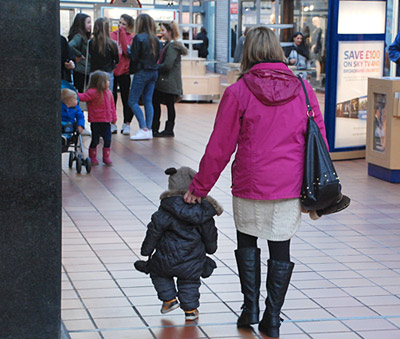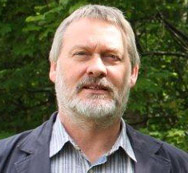New professor to expand Centre for Applied Childhood Studies

Wed, 02 Jul 2014 11:29:00 BST
“...we will develop some new areas around the health and well-being of children and families, plus inter-generational relationships and parenting...”

AS austerity measures bite, the problems affecting children, young people and families are becoming ever more acute, warns a University of Huddersfield expert.
Professor Barry Percy-Smith has taken over as Director of the University’s Centre for Applied Childhood and Family Studies, which has a global profile in child protection and child participation research. His research career has involved participatory research with young people and child and family services with a focus on using action inquiry approaches to innovate thinking and practice in public sector services.
He has taken part in more than 40 UK and European research projects, heading most of them, and has been a visiting research fellow at a U.S. university. He comes to Huddersfield from the University of the West of England in Bristol where he worked as part of the ground breaking SOLAR action research centre committed to developing new and participative approaches to learning and change in public sector services.
At the University of Huddersfield he aims to build on achievements so far at the Centre in child and family studies by developing new areas of research and knowledge exchange drawing on staff interests and expertise in response to pressing issues faced by children and families such as child abuse, domestic violence, child health, impacts of absent parents and social exclusion.
“The Centre has some great strengths in the field of child protection and that will continue,” said Professor Percy-Smith. “But we will develop some new areas of research on the health and well-being of children and families, inter-generational relationships, parenting and work with marginalised young people.” Much of this work is based on strong international and inter-disciplinary partnerships, for example concerning youth participation and citizenship.
But Professor Percy-Smith is concerned by one political development.
“The pressures on children and families have become ever more acute as a result of cuts to public sector services. Of course, there have always been problems with families in crisis and there has always been this question of how to respond. How do we address the persistent underlying problems of disadvantage, marginalisation and inequality that blight the lives of so many children, young people and families. And how might research make more of a difference?”
Future challenges
One of the challenges is to create spaces for research that involves looking at issues and practices in a different way to develop new and alternative responses to the complex problems and challenges society faces. This needs a new social science based on participation, dialogue and inquiry that challenges assumptions and practices and supports professionals to bring systems and services into closer alignment with the real life realities and needs of children and families.
At the same time the focus now is more on older people and problems such as dementia, the crisis in care homes and the affordability of pensions. This is reflected in UK research funding priorities. Our response is to continue with cutting-edge research, for example around the experiences of children with parents in prison, ground-breaking international research in cutting-edge areas such as on children of parents in prison, but at the same time build on local partnerships and develop new forms of research in practice. An example of this is the use of knowledge café and action inquiry approaches as part of service improvement processes.
A key element of Professor Percy-Smith’s approach to research is that children and families should participate in the process.
“A lot of people understand participation as just having a voice. But whose agenda is it? How do we know we are asking the right questions? For me, a participation process involves children and families not just responding to our questions but hearing their stories, working with families to explore some of the issues behind the presenting problems and then critically also involving them in finding solutions rather than leaving the answers just to professionals. Grounding research in lived lives and participatory processes such as these provides a more robust basis for innovating responses to the complex processes we face.”







